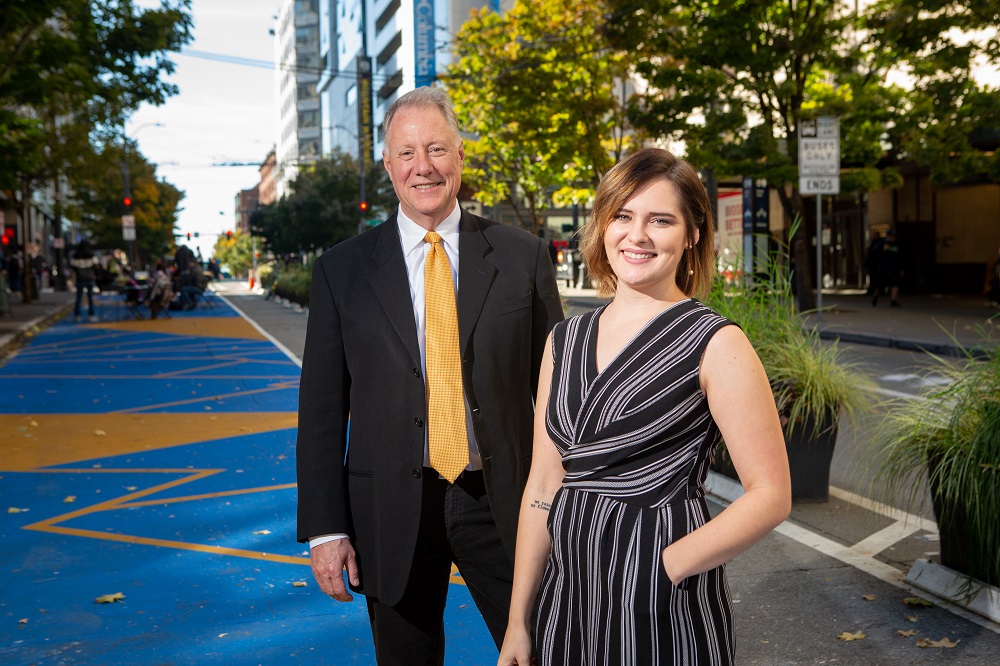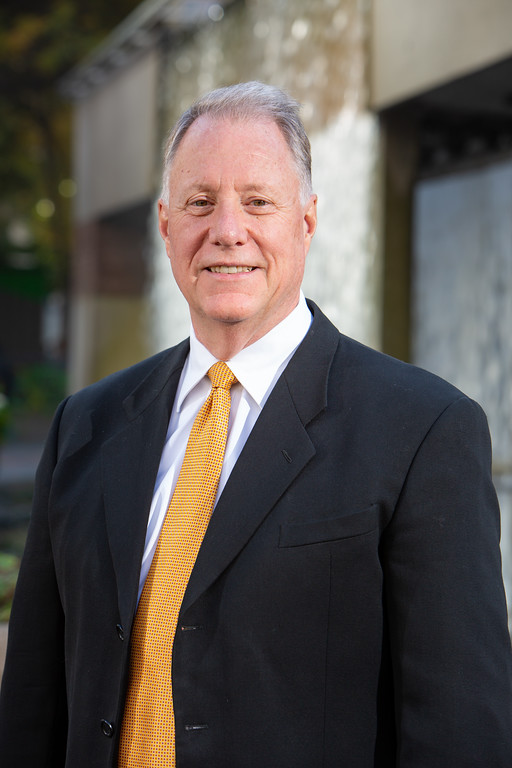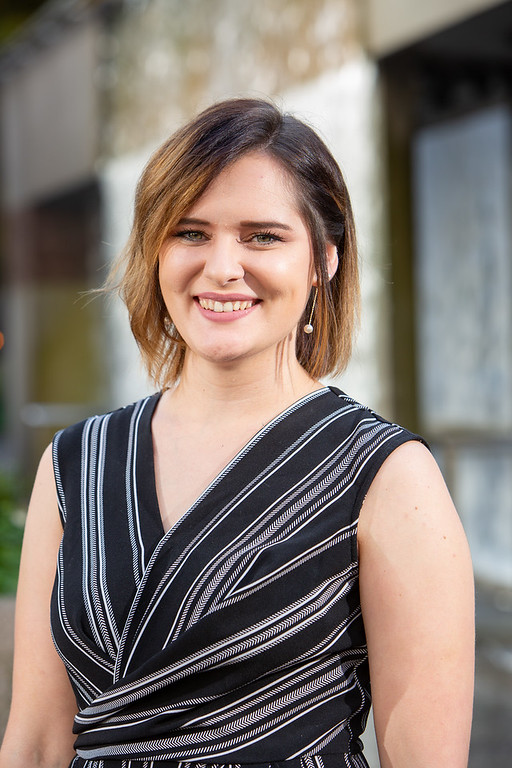Follow the money: Jessica Gilmore and Mark Calvert are partners in forensic analysis
 Some internships begin with an orientation. Jessica Gilmore’s (BA 2016) first day with Cascade Capital Group was more of a disorientation.
Some internships begin with an orientation. Jessica Gilmore’s (BA 2016) first day with Cascade Capital Group was more of a disorientation.
“Take notes,” was the directive from Mark Calvert (BA 1982), managing director of the financial consulting firm, as they drove to interview a man whom their client suspected of fraud.
Wanting to make a good impression, Gilmore dutifully chronicled every word, rat-a-tatting furiously on her laptop to capture the conversation to its last detail.
“So,” Calvert asked afterward, “what did you think?”
He listened as the earnest 21-year-old rookie regurgitated her notes on the interview, complimenting his probing lines of inquiry.
Wrong answer. “If you’re just going to agree with me,” he said, dismissively, “I have no use for you.”
“I’ve made him regret that statement for the past two-and-a-half years,” says Gilmore today, earning a snort of confirmation from Calvert.
One-two punch
Over those eventful months, working closely on the road or in their spartan Seattle office, the two have formed a bond as challenging as it is caring.
Gilmore is all fresh perspective and fearless tenacity, with a mind at once analytic and empathetic—a problem-solving people person. And Calvert is the eclectic expert, with a cool, been-there-done-that confidence that’s hard-earned from decades of accounting, finance, operations and consulting experience in a wide swath of industries.
He founded Cascade Capital, after many years with EY (and its predecessors), nearly 20 years ago as a boutique advisory and operational firm that provides whatever its wide array of clients needs. That means accounting, writ large, which can take the form of advice on investments or acquisitions, operational or financial restructuring, or even the forensic investigation of potential fraud.
It was the latter that initially drew the attention of Gilmore.
Crime fighter
As a kid growing up in the Tri-Cities, Gilmore watched TV crime procedurals with unnatural attention and intent. “I thought, I’m going to do that someday,” she says. “That’s the way my mind works.”
At the Foster School, she studied accounting and was on her way to a conventional career, with two years of small firm tax experience under her belt and designs on a Big Four job. But in her final year, she enrolled in Nancy Pasternack’s elective fraud class and everything changed.
Calvert was a guest lecturer one session, speaking about his role in uncovering the state’s biggest Ponzi scheme. As it happens, he was working on another potential fraud case and needed an intern.
Gilmore jumped at the opportunity.
“We’re fixers”
Quickly getting her bearings in Calvert’s world, she became an essential asset on that project and many others. Using her considerable powers of forensic analysis, she has advised clients in real estate, precious metals, higher education, pot, lighting, gaming, auto sales, banking, hotels and healthcare. She has helped save family businesses through restructuring and settled partnership disputes. Her work has been subpoenaed by the FBI and she has testified in federal court.
The variety suits her. “We walk into chaos, clean it up and then move to the next thing. Like a SWAT team,” says Gilmore, who is a CPA, a private investigator and working on her financial forensics certification. “We’re fixers.”
Embracing discomfort
Calvert is delighted to have found such a worthy protégé.
“There’s a difference between delegating and dumping,” he says. “Now, I’m totally comfortable saying to Jessica: go figure it out and tell me what the answer is.”
“He knows I’m too stubborn not to figure it out,” says Gilmore.
That may be the key to Cascade Capital’s success: addressing any challenge from every possible perspective until they find and implement a solution.
“That’s kind of where I am right now, too,” adds Gilmore. “When Mark comes at me with something I’ve never seen before, he’s pushed me enough and given me enough confidence that I’m not afraid I won’t figure it out. I am used to dealing with ambiguity, to being uncomfortable. It’s a lot more fun to be excited about it than it is to be afraid of it.”


